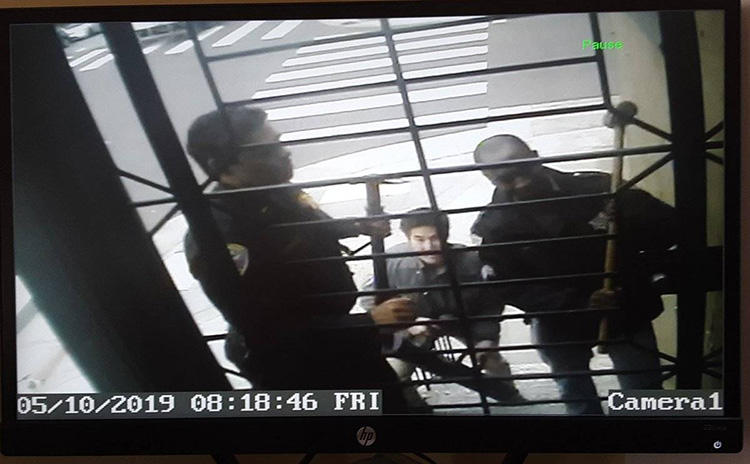Last Friday, between eight and 10 police officers executed a search warrant on freelance journalist Bryan Carmody’s San Francisco home. Police opened the gate with a sledgehammer, handcuffed Carmody, and executed a second search warrant on his home office. These actions were done as part of an investigation into how the reporter obtained a confidential police report. The raid sends a chilling message to local media.
This week, CPJ Executive Director Joel Simon testified at a U.S. congressional hearing on the dangers of reporting on human rights, highlighting the methods governments use to prevent the free flow of information.
Meanwhile, in Paris, New Zealand Prime Minister Jacinda Ardern and French Prime Minister Emmanuel Macron led a summit with government and tech leaders to seek voluntary pledges aimed at eliminating terrorist and violent extremist content online. In a new op-ed, CPJ Advocacy Director Courtney Radsch explores the press freedom implications of the “Christchurch Call.”
Global press freedom updates
- French reporters questioned by intelligence service in leak investigation
- Greek CNN reporter Mina Karamitrou’s car destroyed by bomb
- Journalist’s car burned in Italy
- Polish investigative journalist Baca-Pogorzelska receives menacing text messages
- Caracas full of uncertainty for journalists covering Venezuela. Read CPJ’s safety advisory for journalists covering the crisis in both English and Español
- Mexican anti-corruption news website MCCI hit with cyberattack
- Sri Lankan army reinstates official suspected in Lasantha murder, other attacks
- Myanmar journalist Aung Marm Oo in hiding as police seek his arrest
- Iranian reformist magazine Seda suspended after urging negotiations with U.S.
- Read the latest Turkey Crackdown Chronicle, CPJ’s weekly round-up of press freedom violations in the country
- Tunisian media regulator shuts down Nessma TV, citing regulatory violation
- Israeli forces destroy Gaza office of Turkish Anadolu news agency
- Libyan journalists Mohamed al-Qurj and Mohamed al-Shibani have been missing since May 2
- CPJ calls for withdrawal or modification of Hong Kong extradition bill
- Journalists injured in election-related violence in West Bengal
- Human Rights Council should address Tanzania crackdown
Spotlight
This week, reports revealed that the messaging app WhatsApp has a vulnerability that can open users up to potential spyware attacks. Digital researchers said the spyware has characteristics of the Pegasus technology from the Israeli company NSO, which has been used to target journalists, as CPJ has found in previous reporting.
CPJ’s latest safety advisory on the vulnerability provides steps to take if you believe you have been targeted. Along with up-to-date safety advisories, CPJ’s Emergencies Response Team also provides safety notes for guidance on physical, digital, and psychosocial safety.
What we are reading
- Unboxing Artificial Intelligence: 10 steps to protect Human Rights — Council of Europe
- Inside China’s Massive Surveillance Operation — Natasha Wigoder, Wired
- Tanzania Was East Africa’s Strongest Democracy. Then Came ‘The Bulldozer.’ — Jonathan Rosen, The Atlantic
- India’s #MeToo backlash: accusers battle intimidation, threats and lawsuits — Michael Safi, The Guardian
- Police Raid Of Journalist’s Home In San Francisco Sets Off First Amendment Firestorm — David Folkenflik, NPR
- Where is Azory Gwanda? He’s alive on social media — Elsie Eyakuze, The East African
